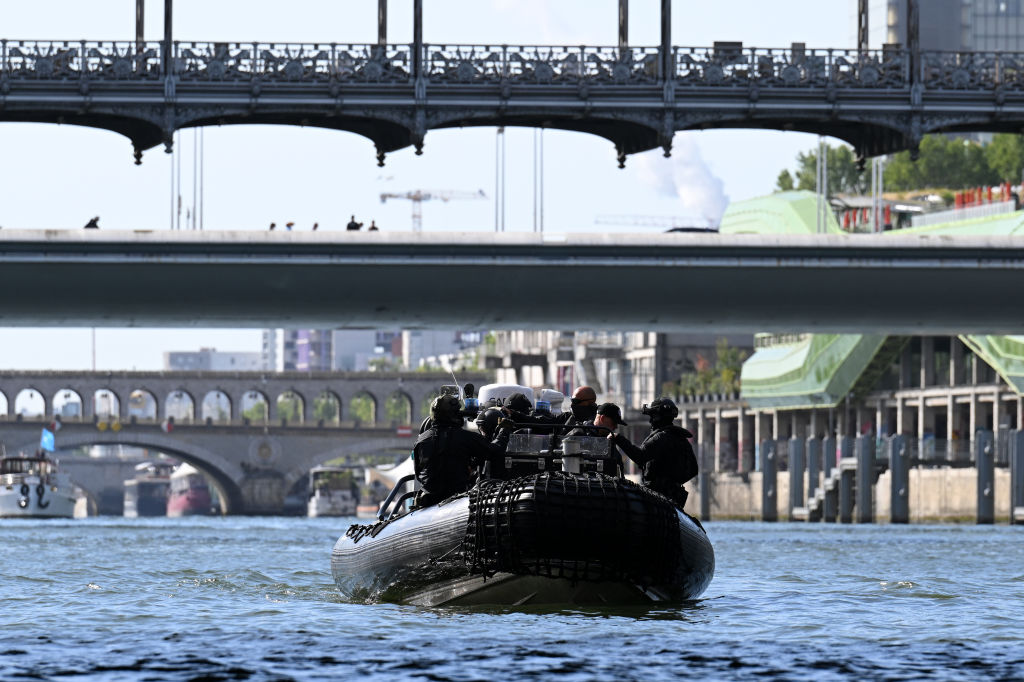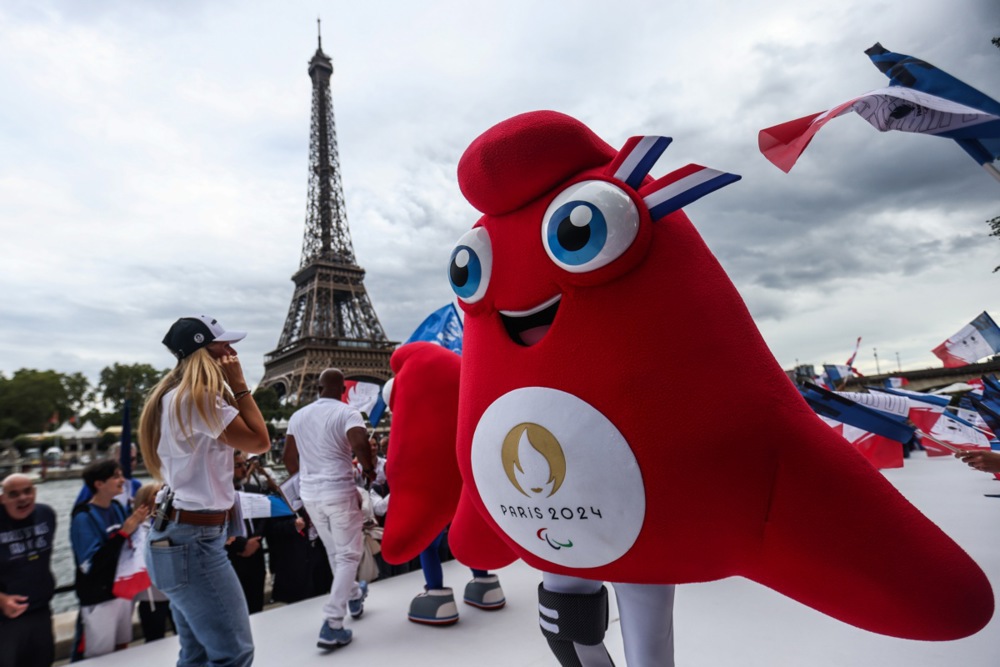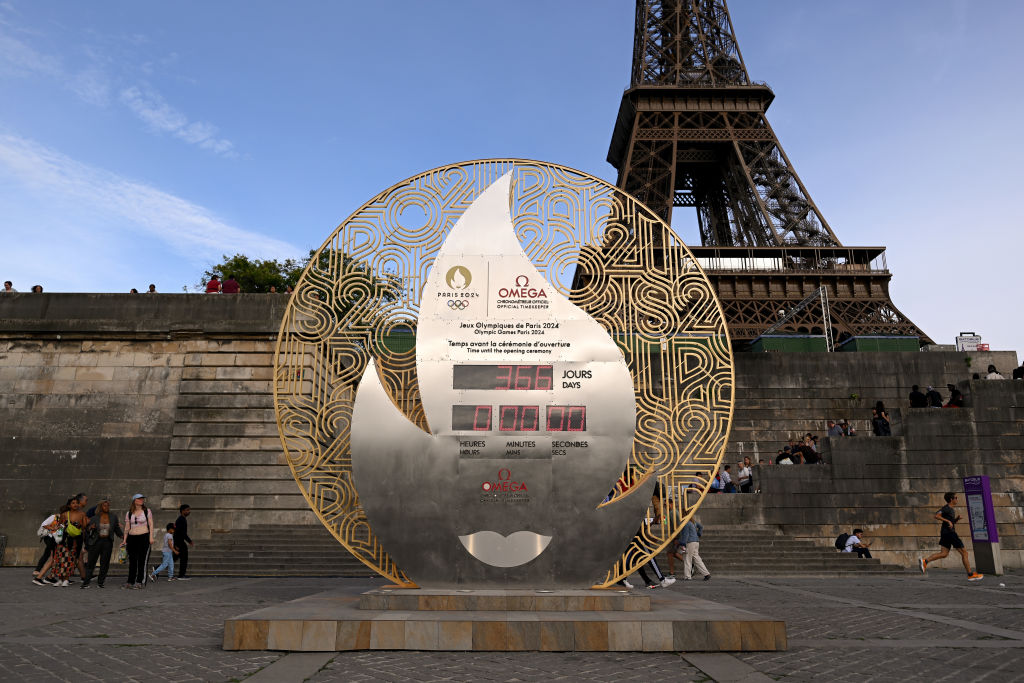Two weeks before the Olympic Games are set to kick off in Paris, Qatari security forces, equipped with armoured vehicles and urban camouflage livery, arrived in the French capital to help “secure” the global event.
Qatari state media published photos of the security forces making their way through the streets of Paris, pausing to pose by the Arc de Triomphe and the Eiffel Tower. What, you may be wondering, are Qatari forces doing in the City of Love? Qatar and France are in an unhealthy relationship, and part of the promises the two made to each other and formalised in a signed agreement earlier this year was security cooperation.
As one Qatari state media report put it, “The tasks of this force are an extension of its tasks in maintaining security in Qatar, and it will continue with determination to implement what is asked of it with all efficiency and professionalism” and “stressed that the security expertise of the State of Qatar has become a reference that can be used in major international events.”
Cutting through that noise, here is the real nugget. The strategic photo-ops in front of Paris’ most famous monuments are part of a broader public relations campaign that serves as a grand display of strength from a brutal authoritarian regime that has faced no repercussions for its numerous scandals and human rights abuses, including the exploitation of migrant workers in the lead-up to the 2022 World Cup, which it hosted.
Consider that again. A country that could not even keep the migrant workers building the infrastructure for the 2022 World Cup safe is now responsible for the security of athletes from all around the globe in Paris — a place that, one might argue, shouldn’t need such help from the Gulf.
So how, then, did France come to integrate Qatar into its plans for the Paris Games?
It began in February, when Qatar and France formed a strategic partnership that saw Doha commit to investing €10bn into French start-ups and investment funds between 2024 and 2030. The agreement also included Qatar providing more than 2,000 security officials to support French officers during the Olympics. These officials would participate in foot patrols, counterterrorism, drone operations, explosive ordnance disposal, cybersecurity, and riot control.
The deal was hailed as a “mutual benefit of both countries.” France would get a much-needed economic boost from its resource-rich partner, while Qatar would get three things: to influence foreign policy, secure a prominent position on the global stage, and have a front-row seat at global events like the Olympic Games.
It is a strategy typical of Qatar’s foreign policy approach to the Western world, where the Gulf state spends billions on key assets that boost its influence on the diplomatic stage.
In France, for example, Qatar has purchased prime commercial real estate and various investment properties across the country. It has purchased cultural assets, such as French football club Paris Saint-Germain (PSG). And it has purchased a get-out-of-jail-free card. That is because its strategic investments in the West also mean that countries like France will ignore its various controversies, including its affiliation with Islamist extremist entities such as the Muslim Brotherhood.
Perhaps one of the biggest controversies being swept under the rug by the French government and President Emmanuel Macron involves Qatar’s alleged bribery of European lawmakers.
Several MEPs, including former vice president of the European Parliament, Greek politician Eva Kaili, have since been arrested on suspicion of accepting bribes to defend Qatari interests. Law enforcement authorities in Belgium, Italy, and Greece seized €1.5 million in cash (including some found in a suitcase) and confiscated computers and mobile phones as part of their investigation into a scheme aimed at influencing European Parliament decisions in favour of Qatar.
Macron faced significant criticism from the French public for his decision to attend the 2022 World Cup France-Argentina final in Qatar, which just so happened to coincide with the news of the aforementioned Qatar corruption scandal, known as QatarGate. It remains unresolved and unpunished and is just one of many skeletons in the Qatari-French closet.
In another bit of chicanery, former French President Nicolas Sarkozy, in 2017, faced a criminal investigation over allegations he accepted bribes to support Qatar’s bid to host the 2022 FIFA World Cup. The former president was accused of offering his bid in exchange for several favours, including the purchase of a French energy and waste company, French fighter jets, and football club PSG (the team has been owned by a subsidiary of the Qatar Investment Authority since 2011, one year after Qatar was awarded the 2022 World Cup).
In 2021, Sarkozy was convicted of corruption in two separate criminal trials related to improper campaign contributions and was sentenced to three years in prison, with two years suspended. An appeals court upheld his sentence in February.
These scandals highlight Qatar’s ability to purchase influence among some of the globe’s most powerful figures. This form of cheque book diplomacy has been one of Qatar’s most significant tools, allowing it to leverage its wealth and resources to secure power and diplomatic advantage.
The Qatari government continues to deny any accusations of misconduct, instead warning that its continued implication would “negatively affect” the relationship between Qatar and the European Union.
Qatar’s elevated role at the 2024 Paris Games marks the latest example of how the tiny Gulf state continues to use sports as a conduit to employ soft power.
Since hosting the 2022 World Cup, Qatar has held more than a dozen major championships on home soil, including the AFC Asian Cup (football), the Qatar Open (tennis), the Artistic Gymnastics World Cup 2024, and the Volleyball World Beach Tour Finals. Qatar is also closing in on a £800m (€950m) deal to host the Rugby Nations Championship for eight years, starting in 2026.
Doha’s ongoing success in sports and diplomacy, despite a long record of human rights abuses, stems from lopsided relationships with countries such as France. Instead of finding itself in a political divorce court, Qatar now finds itself in a position where, apart from sending athletes to compete at the Olympic Games in Paris, the Gulf state gets to boast that its internal security forces helped keep people safe, which reinforces its influence and strengthens its diplomatic ties with Western nations.
These agreements allow Qatar to evade repercussions for its abuses by offering substantial financial incentives that silence its most vocal critics. In many ways, France has become one of Qatar’s biggest enablers, allowing the controversial regime to operate unchecked in exchange for monetary benefits.
This approach allows Qatar to present itself as an indispensable player in international events, further solidifying its seemingly inevitable presence in global affairs — a place it does not deserve.
Karim Zidan is a Sports and Dictators fellow at the Human Rights Foundation





Cohabiting with bed-bugs and rats: What Paris’s current infestation says about France and the state of its politics